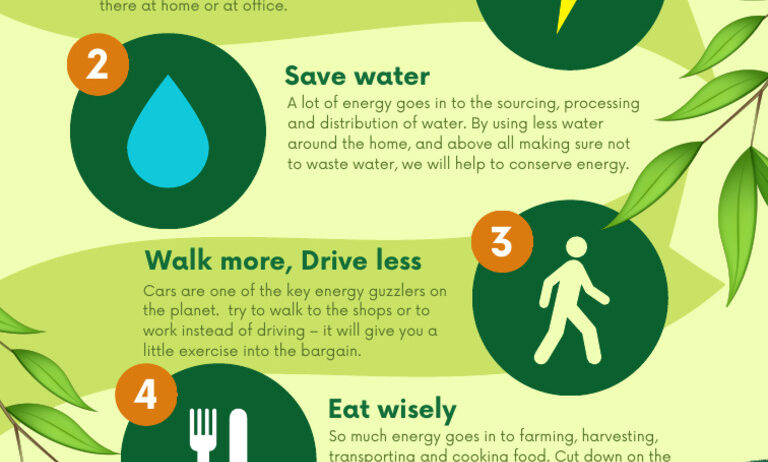In an age where the repercussions of climate change are glaringly evident, conserving conventional sources of energy has become paramount. As we traverse through various niches of energy conservation, it’s imperative to recognize not only the moral responsibility to reduce our carbon footprint but also the economic advantages derived from optimized energy consumption. This exposition elucidates on various strategies to conserve energy responsibly, encompassing domestic practices, industrial strategies, and broader systemic approaches.
At the grassroots level, individuals can make substantial contributions to energy conservation. Homeowners play a pivotal role by employing simple yet effective tactics. The first and foremost step is to enhance the insulation of homes. By correctly insulating walls, attics, and basements, one can significantly mitigate the loss of heat during winter months and the influx of heat in summer. This not only contributes to a more comfortable living environment but substantially diminishes the reliance on heating and cooling systems.
In conjunction with insulation, the installation of energy-efficient windows can further bolster home energy conservation. Double or triple-glazed windows, equipped with Low-E coatings, reflect infrared light while allowing visible light to pass through. This leads to reduced energy consumption for heating and cooling. Moreover, these windows significantly attenuate outside noise, thereby contributing to an enhanced quality of life.
Moreover, the transition to energy-efficient appliances cannot be overstated. Appliances bearing the Energy Star label are specifically designed to utilize less energy compared to standard models. Whether it’s a refrigerator, washing machine, or water heater, opting for energy-efficient models conserves significant amounts of electricity, ultimately leading to reduced utility bills.
Behavioral modifications are equally vital in the quest for energy conservation. Simple actions such as turning off lights in unoccupied rooms, utilizing natural light whenever feasible, and being judicious about water heating can collectively lead to noteworthy energy savings. Furthermore, embracing technologies such as smart thermostats can optimize heating and cooling based on occupancy patterns, yielding both comfort and efficiency.
Beyond the household scope, businesses and industries present a significant opportunity for energy conservation. Resource-intensive sectors such as manufacturing and transportation can implement comprehensive strategies to enhance energy efficiency. For manufacturers, the incorporation of energy management systems allows for real-time monitoring and optimization of energy use across various processes. By identifying inefficiencies, industries can restructure operations to minimize waste and optimize resource utilization.
On the transportation front, promoting public transit systems and encouraging carpooling are crucial steps towards energy conservation. The majority of fossil fuel consumption is attributable to personal vehicles. Thus, advocating for public transport not only diminishes energy expenditure but simultaneously lessens traffic congestion and lowers greenhouse gas emissions. Other alternatives, such as biking and walking, offer not only environmental benefits but also promote healthier lifestyles.
Furthermore, integrating renewable energy technologies into existing infrastructure can complement energy conservation efforts. Solar panels, wind turbines, and geothermal systems provide sustainable alternatives to traditional energy sources. By harnessing the capabilities of renewable energy, individuals and businesses can significantly reduce their reliance on conventional energy sources, paving the way for a more sustainable future.
Policy frameworks and government interventions play a substantial role in fostering a culture of energy conservation. Governments can incentivize energy efficiency through tax rebates and subsidies for energy-efficient appliances, home retrofitting, and renewable energy installations. Establishing rigorous energy efficiency standards not only propels advancements in technology but also helps set a benchmark for consumers and industries alike.
Moreover, educational initiatives aimed at raising awareness regarding energy conservation are paramount. Communities can benefit from workshops, seminars, and outreach programs designed to educate individuals on energy-efficient practices. By fostering a culture of awareness, citizens become informed advocates for sustainability, inspiring others to adopt responsible energy consumption habits.
Collectively, the transition towards conserving conventional sources of energy encompasses a multi-faceted approach that merges individual actions with systemic changes. By prioritizing energy efficiency at home and in the workplace, individuals can contribute to a larger movement aimed at mitigating climate change. The integration of renewable technologies further complements these efforts, creating a sustainable energy ecosystem.
In conclusion, the responsibility to conserve energy lies with each and every one of us. Through concerted efforts in insulation, appliance efficiency, behavioral changes, industrial optimization, transportation innovations, and governmental policies, we can forge a pathway towards a more energy-conscious society. In the fight against climate change, every step taken in conserving conventional sources of energy is a step towards a greener, more sustainable future. The time to act is now. Embrace energy conservation with vigor; the planet depends on it.







